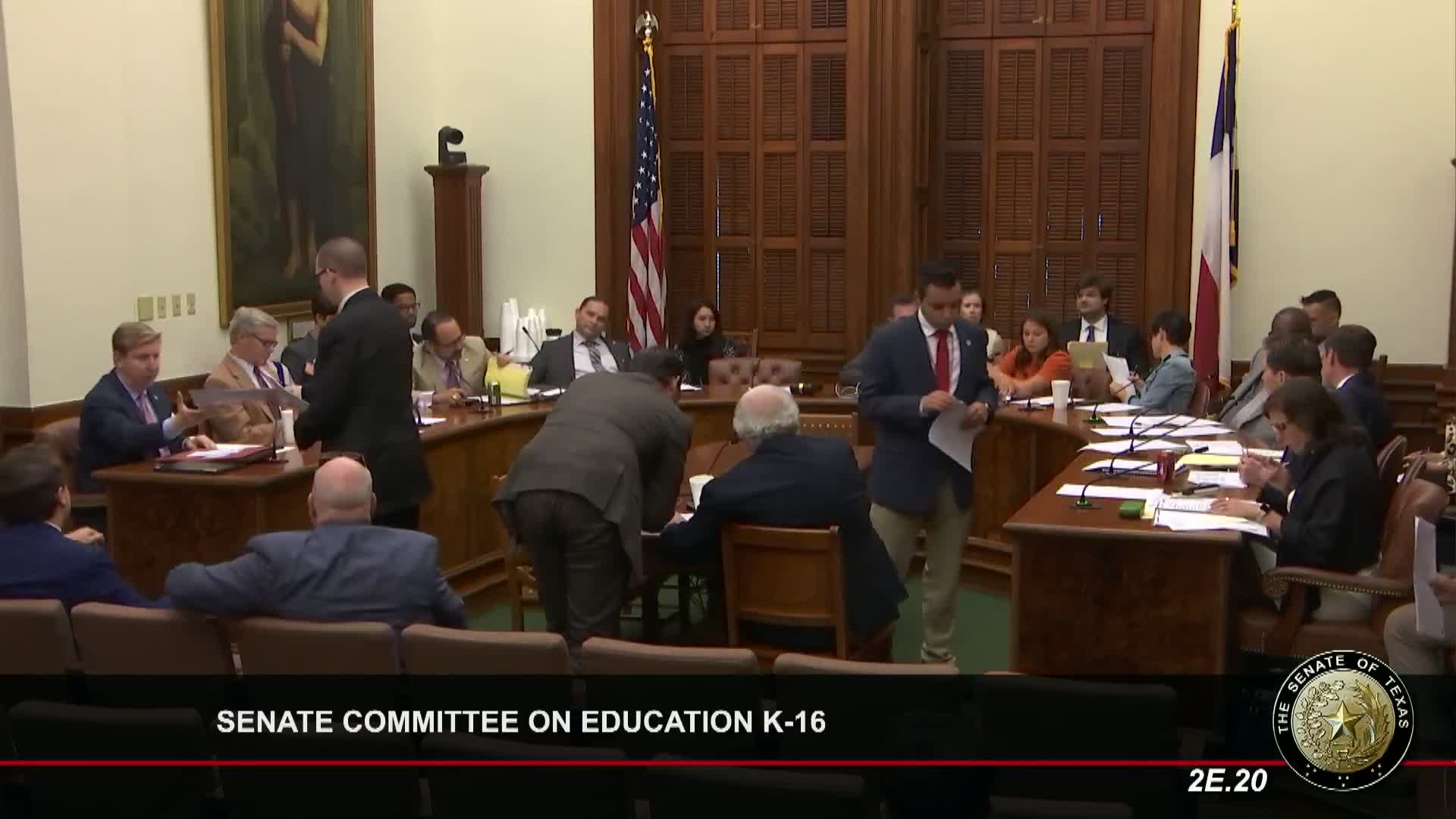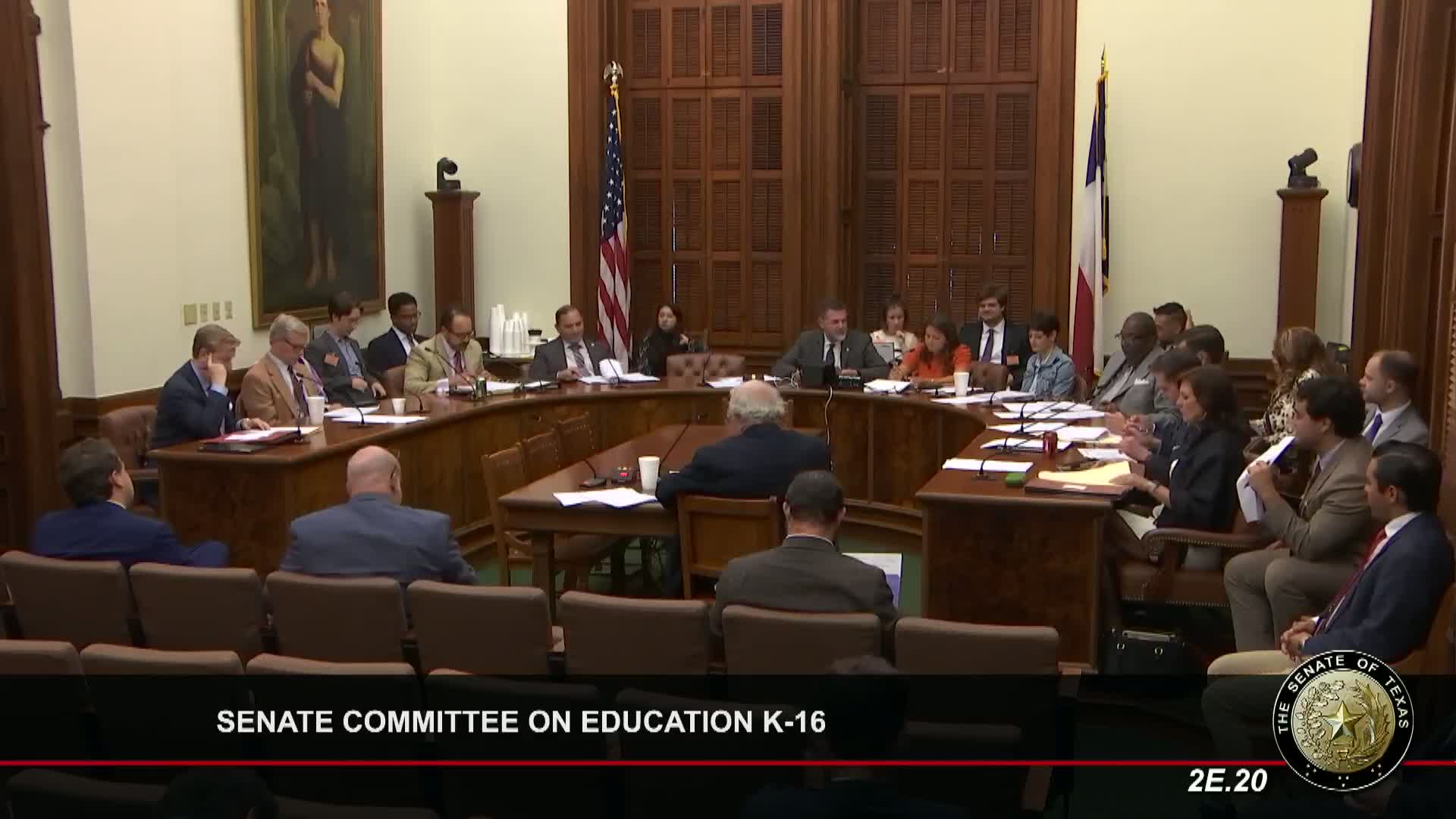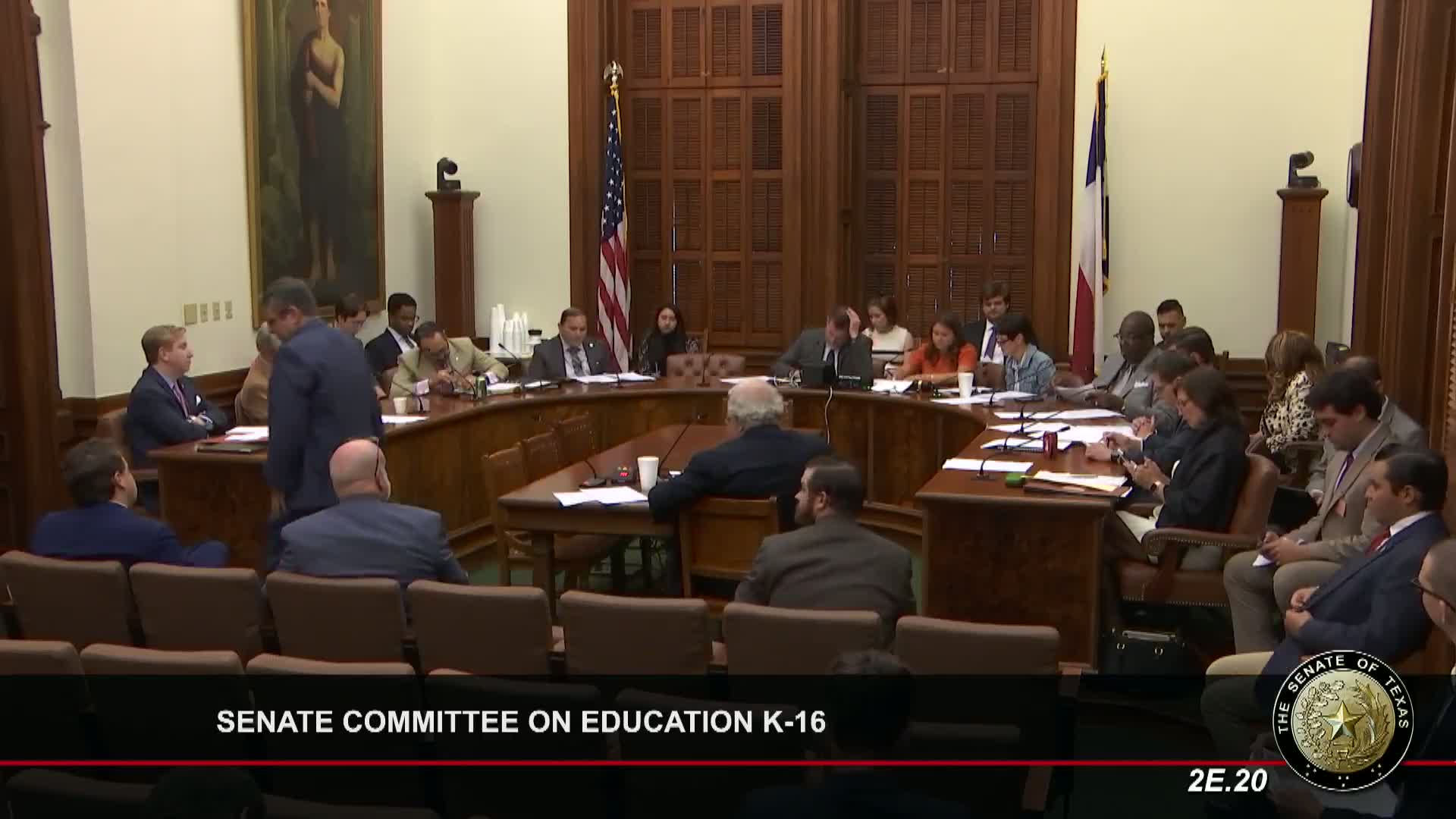Article not found
This article is no longer available. But don't worry—we've gathered other articles that discuss the same topic.

Committee advances bill narrowing outside consulting by school administrators; senators debate scope and penalties

Senate committee advances bill expanding civil liability for student abuse by school employees

Committee advances bill on verification of excused absences for students with severe or life‑threatening illnesses

Committee reports tuition and lab fee exemption bill for certain students at public higher-education institutions

Committee adopts technical substitute creating temporary educator certificate for out-of-state certified teachers

Committee adopts substitute extending tuition and fee exemptions for students formerly in DFPS conservatorship to their 20th birthday

